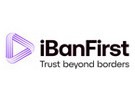Recently, Bloomberg announced that, in Russia, the Chinese yuan has replaced the American dollar - the world's pre-eminent trading currency - as the most traded currency. That and current geopolitical tensions refueled the question of whether the dollar's dominance is waning. Although Joost Derks, a currency specialist at Ibanfirst, sees the Chinese yuan strengthening, he does not expect the dollar to weaken yet.
He points to various reasons why the dollar will, for now, remain the world standard in currency. For one, most global debt is issued in USD, which, obviously, has to be repaid as such, thus prompting demand for dollars. "Loans are issued in dollars, not only in the U.S. but also in Europe, Asia, and developing countries, even China. That currency is partly financing the New Silk Road's construction," Joost begins.

Joost Derks.
Military and financial ties
The U.S.'s military dominance also plays a role. "The stronger a country's military ties with the U.S., the closer that country's links are to, and somewhat dependence on, the U.S. dollar." That is according to U.S. central bank research on global dollar payments. Joost says dollar payments made anywhere in the world - including, for example, those to fulfill an order from the Netherlands to AliExpress - go through a U.S. bank. "Data shows that countries with strong military ties to the U.S. hold 75% of all global USD reserves. There's a tremendous strong dependence on the dollar related to military dependence," he says.
RMB on the rise
That said, Joost does see the Chinese renminbi's (RMB) rise. "European countries are increasingly gaining access to the Chinese market, and more and more companies can pay in RMB, which will keep increasing.” However, he expects the renminbi's limited liquidity - which, by the way, is pegged to the dollar - and the control that China wants over its capital account will, for now, hinder the RMB's further advance. "As long as that and the Chinese currency market remains closed, the yuan cannot, like the USD, be traded freely," he explains.
To explain the current trade differences between the dollar-dominates and renminbi-based currencies, Joost refers to interest rates. On any given day, those derived from trading in renminbi are worth about $30 billion; that same amount is reached within 20 minutes when trading in USD. "In 2022, renminbi trading equaled that of the dollar in 1992, 30 years ago." Although Derks sees the business community embracing the yuan, the market will probably remain limited as long as China wants to keep control of its currency. "That is going to take plenty of time in China. The Chinese currency's role is increasing there, but in tiny increments," he continues.
Euro currently in favor
For the time being, thus, things will continue 'as normal' with the good old dollar. What does that mean for the European fruit and vegetable sector? "The dollar is currently somewhat weaker against the euro. Interest rate differentials between the currencies are narrowed slightly in the euro's favor." Joost indicates that after the dollar's sharp rise last year due to faster-rising interest rates in the U.S., a reversal is now evident. "U.S. interest rates are still higher than in Europe. Nonetheless, that gap is shrinking. In early May, the U.S. central bank hiked interest rate for what should be the last time this year. The European Central Bank, however, probably isn't done yet," he concludes.
For more information:
Joost Derks
iBanFirst
+31 85 808 5033
[email protected]
www.ibanfirst.com
